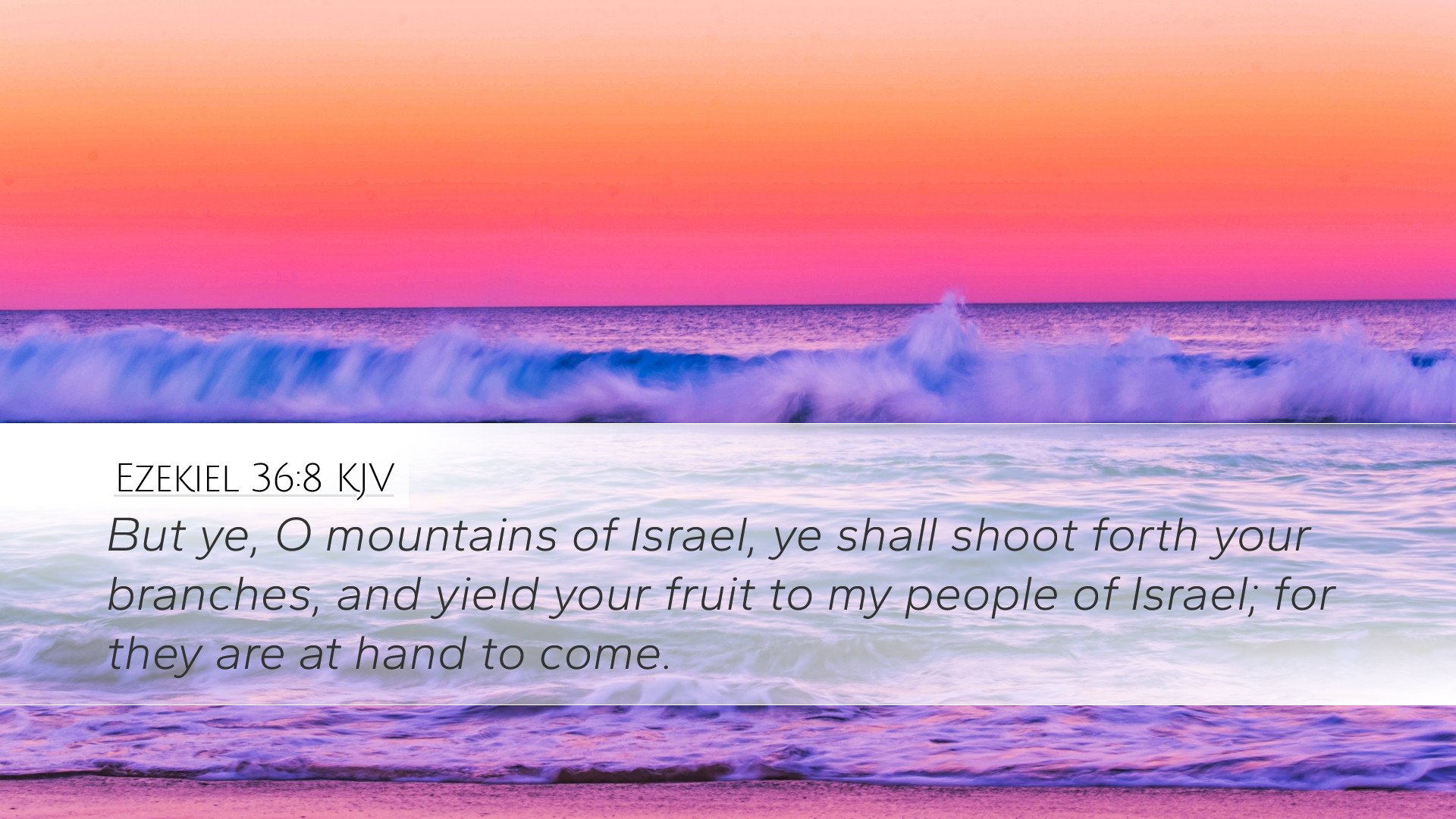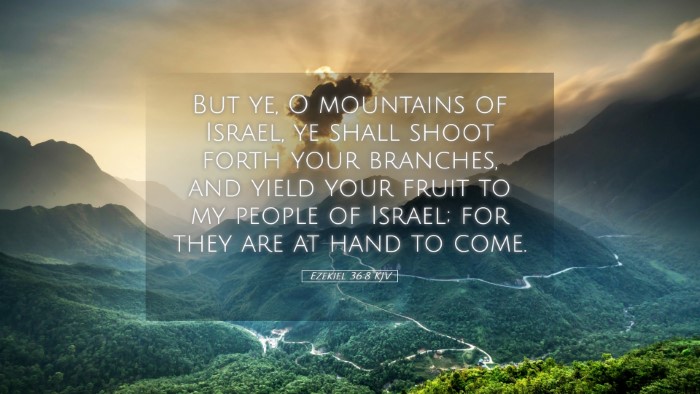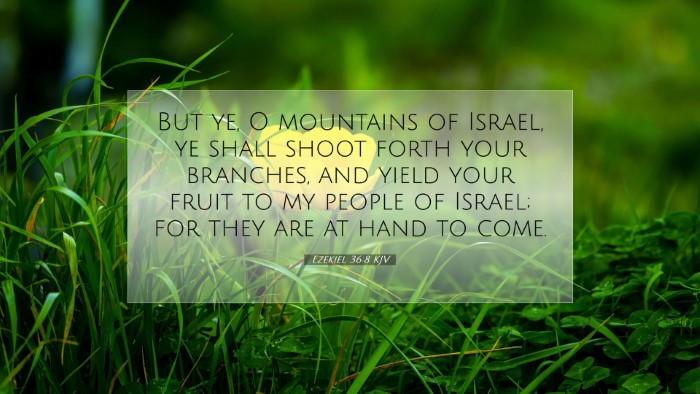Ezekiel 36:8 Commentary
Bible Verse: "But you, O mountains of Israel, you shall shoot forth your branches and yield your fruit to my people of Israel, for they are about to come." (Ezekiel 36:8)
Introduction
The prophecy in Ezekiel 36 is deeply rooted in the promises of restoration and hope to the people of Israel. As the prophet Ezekiel speaks, he emphasizes the vital connection between the land of Israel and its people. In this commentary, we draw from the insights of esteemed theologians such as Matthew Henry, Albert Barnes, and Adam Clarke to deepen our understanding of this significant verse.
Contextual Background
Ezekiel, a prophet during the Babylonian exile, addresses the desolation not only of the people but also of the land. The chapter serves as a pivotal message of hope amidst despair, emphasizing God's enduring covenant with Israel. The prophet speaks directly to the mountains of Israel, symbolizing the land that has been laid waste but is poised for renewal.
Analysis of Ezekiel 36:8
1. The Mountains of Israel
According to Matthew Henry, the reference to the "mountains of Israel" is significant as they represent the core of the national identity and the geographical heart of the nation. The mountains are a symbol of stability and permanence, which contrast sharply with the desolation experienced by the Israelites during their exile. The revival indicated here is not merely geographical but also spiritual.
2. The Promise of Fruitfulness
Albert Barnes highlights the metaphor of the mountains shooting forth branches and yielding fruit. This vivid imagery denotes a restoration that leads to fertility and abundance. It symbolizes not only the agricultural prosperity that will return but also the spiritual revival intended for the people of God—indicating that the land will flourish once more in harmony with its inhabitants.
3. The People of Israel
The phrase "my people of Israel" reflects God’s enduring relationship with His covenant community. Adam Clarke notes that this terminology underscores God's commitment to His people. The reestablishment of Israel’s identity and purpose is affirmed through the promise that they will return. This return from exile serves as a prelude to the blessings that are to come.
Theological Implications
The implications of Ezekiel 36:8 extend deeply into the theological realm. The verse captures the essence of renewal, not only physically but also spiritually. The restoration of the land and its productivity symbolizes God’s faithfulness to His promises, thereby reinforcing the nature of divine grace.
1. The Nature of God's Promises
Matthew Henry reflects on the unchanging nature of God’s promises. Despite the dire circumstances faced by the Israelites, God assures them of a future filled with hope and restoration. This speaks to the character of God as one who remains faithful, even when His people are unfaithful.
2. God’s Sovereignty over Creation
Albert Barnes emphasizes the sovereignty of God not just over Israel but over all creation. The mountains and the land respond to God’s command, highlighting a divine order that transcends human circumstances. This illustrates the concept that ferocity in nature yields to the divine will.
3. The Anticipation of Restoration
In line with Adam Clarke, the promise of fruitfulness encourages believers to anticipate and seek restoration in their own lives. Just as the mountains are promised to yield their fruit, so likewise, individuals and communities are called to cultivate a heart open to the transformative work of God.
Application for Today
This verse serves as a profound source of encouragement for pastors, students, and theologians alike. It signifies that in times of adversity, one should remain rooted in the promises of God and hold onto the hope of spiritual and physical restoration.
- 1. Hope in Despair: Just as Israel was assured of restoration, individuals today can trust in God’s promises during their challenges.
- 2. Renewal and Growth: Believers are called to actively seek personal and communal growth, akin to the mountains bearing fruit.
- 3. Understanding God’s Covenant: The passage invites a deeper contemplation of God’s steadfast love and faithfulness toward His people.
Conclusion
In conclusion, Ezekiel 36:8 encapsulates a divine promise rich with significance for both the historical context of Israel and present-day believers. The combined commentary from Matthew Henry, Albert Barnes, and Adam Clarke helps unpack layers of meaning that encourage a faithful response to God's undertaking in restoration.


